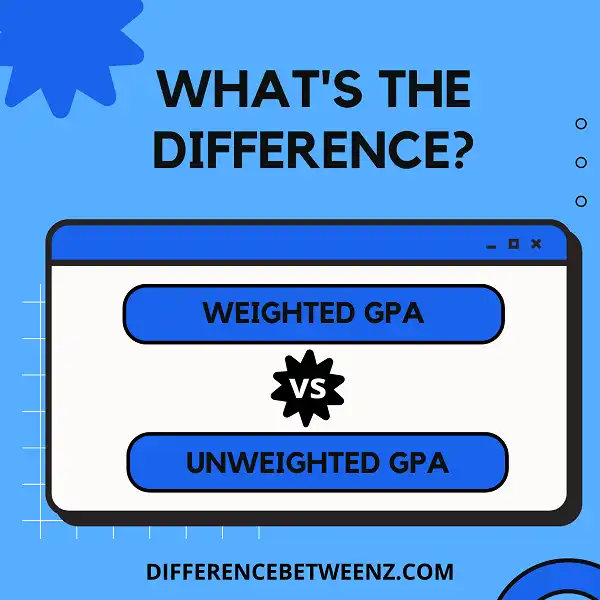GPA can be one of the most important factors for college admissions. There are two types of GPAs – weighted and unweighted. So, what is the difference between these two? Weighted GPA takes into account the difficulty of a course, while unweighted GPA does not. Which one is better? Read on to find out!
What is Weighted GPA?
Weighted GPA is a type of grading system that takes into account the difficulty of a course when calculating a student’s GPA.
- In most schools, a standard GPA is calculated by giving each letter grade a numerical value and then averaging all of the grades together. However, in a weighted GPA system, different letter grades are given different values depending on how difficult the course is.
- For example, an A in an AP or Honors class might be worth 5 points, while a B in a regular class is only worth 3 points. As a result, students who take more challenging courses will have a higher weighted GPA than those who take easier courses.
- While weighted GPAs are not used by all schools, they can be helpful in giving students an accurate measure of their academic achievement.
What is an Unweighted GPA?
Unweighted GPA is a term used to describe the GPA that a student earns without any additional weight being given to grades earned in college-level or honors classes. Unweighted GPA is usually reported on a 4.0 scale and is the GPA that is most often used for college admissions purposes. Because all grades are given equal weight, an Unweighted GPA can sometimes give a more accurate picture of a student’s academic ability than a Weighted GPA. However, Unweighted GPAs are not always available, and when they are, they are often not prominently displayed. As such, it is important to be aware of both Unweighted and Weighted GPAs when considering a student’s academic record.
Difference between Weighted GPA and Unweighted GPA
Weighted GPA and Unweighted GPA are both measures of a student’s academic performance, but they differ in how they are calculated.
- A Weighted GPA takes into account the difficulty of the classes taken, while an Unweighted GPA does not.
- As a result, Weighted GPAs are often higher than Unweighted GPAs.
- Weighted GPAs are typically used by colleges and universities to better assess a student’s academic achievement.
- For example, if two students have identical Unweighted GPAs but one took mostly easy classes while the other took mostly challenging classes, the Weighted GPA would give the student who took more challenging classes a higher rating.
- In contrast, Unweighted GPAs are often used by high schools to avoid penalizing students who take more challenging classes.
Therefore, when comparing Weighted GPAs and Unweighted GPAs, it is important to keep in mind the context in which they were calculated.
Conclusion
So, what is the difference between a weighted and unweighted GPA? Simply put, a weighted GPA assigns more points to grades in honors or Advanced Placement (AP) classes than it does to grades in regular courses. An unweighted GPA awards the same number of points to all grades. Most colleges use a weighted GPA when calculating an applicant’s academic record. If you are curious about how your school calculates GPAs, be sure to ask your guidance counselor.


